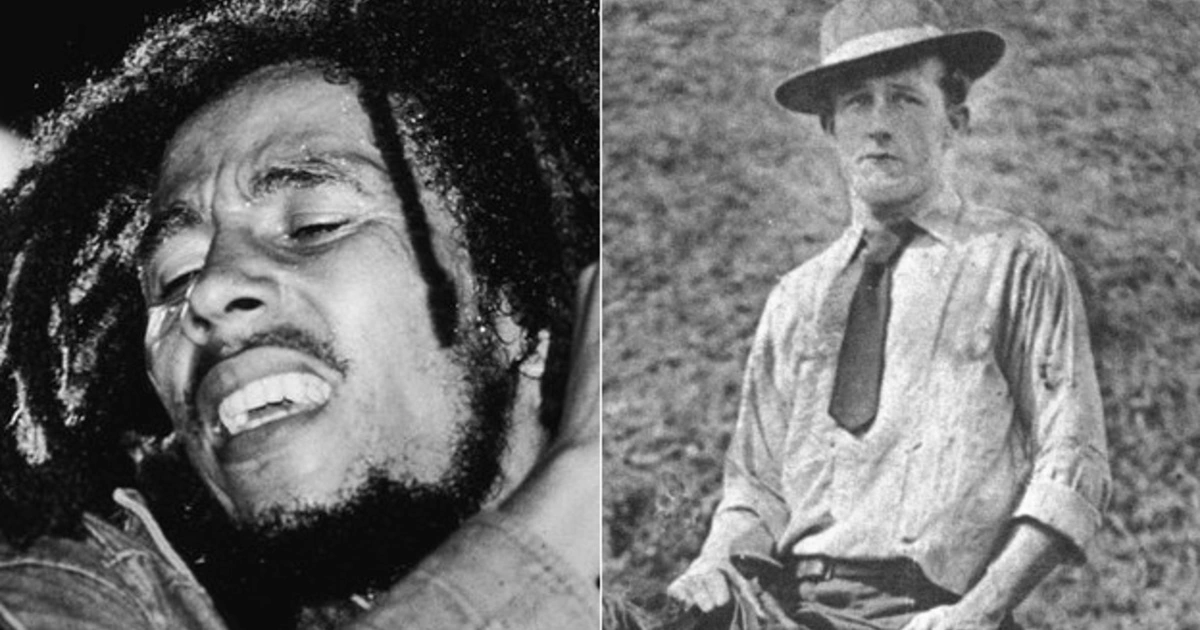Bob Marley is synonymous with reggae music, peace and cultural revolution. But, not much is known about his father, Norval Sinclair Marley, whose life is covered in secrecy. The available sparse bits of information about Norval tell a story that is as interesting as it is hard to understand. Therefore, this blog post explores Norval Marley’s life by looking at his background, relationships, military service, and how his absence affected Bob Marley’s life and legacy in general.
Table of Contents
An Elusive Figure
The unavailability of information about Norval Sinclair Marley’s life has made him an almost legendary figure. He was born in Crowborough, East Sussex, UK, in 1885 and later emigrated to America from Cuba before joining the army in Liverpool on August 12th, 1916 Standing at 5ft 5ins (1.65m) and weighing 124 lbs (56kg), he declared his occupation as a construction engineer.
Despite his enlistment, Norval’s military career was far from illustrious. His brief stint at Park Hall training camp in Shropshire revealed his struggles with health, leading to his reassignment to a support battalion and eventual transfer to the Labour Corps. He never saw frontline action, spending the war in the UK. This aspect of his life is often overshadowed by romanticized rumours and exaggerated tales, contributing to the enigmatic aura surrounding him.
Norval Sinclair Marley’s Family and Relationships
Norval Sinclair Marley’s relationship with Bob Marley’s mother, Cedella Malcolm, is a significant chapter in the Marley family history. At around 60 years old, Norval met and married 18-year-old Cedella while working as a plantation supervisor in Jamaica. On February 6, 1945, Cedella gave birth to Nesta Robert Marley, later known as Bob Marley. However, the couple separated shortly after Bob’s birth, casting a long shadow over Bob’s early life.
Actress Esther Anderson, Bob Marley’s girlfriend in the 1970s, spoke about how Norval’s absence affected his relationship with Marley. She observed that Bob seldom mentioned his dad, and whenever he did so, it was mostly in derogatory language. The absence of Norval, which influenced Bob’s raising, is reflected to some extent in his music.
Military Service and Health
Norval Sinclair Marley’s military service is a story of wasted opportunities. He enlisted in 1916 but soon fell sick while undergoing training. In the hospital, he was referred to as a “neurotic type” with “urinary incontinence,” leading to an operation, though no physical cause could be identified. Thus, he was redirected to a support battalion for the rest of the war and other non-combat roles.
Historian Keith Pybus highlighted the unglamorous nature of Norval’s assignments, which involved tasks related to sanitation and laundry rather than heroic deeds. Records indicate that Norval later received a pension due to “ill health caused by army service,” further illustrating his challenges during this period.
Legacy and Speculations
The lack of a documented legacy and the romanticized rumours about Norval Sinclair Marley’s life after the war contribute to the mystery. Some stories suggest he worked in Lagos, Nigeria, either in the Military Police or the local army, where he allegedly acquired the title of captain. While these tales add a layer of intrigue, their authenticity remains questionable.
Esther Anderson and other close associates of Bob Marley have often dismissed these stories as embellishments. They believe many of these narratives originated from Bob’s mother, Cedella, and lacked substantial truth. Nonetheless, although ambiguous, Norval’s legacy has undeniably impacted Bob Marley’s life and music.
Conclusion
Norval Sinclair Marley’s life is a complex tapestry of fact, fiction, and speculation. A fascinating narrative forms owing to the dearth of information about his background and elusive presence. Bob Marley’s life was significantly affected by his not being there when he grew up as an artist, which influenced him throughout his career.

